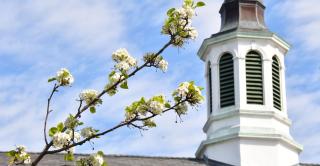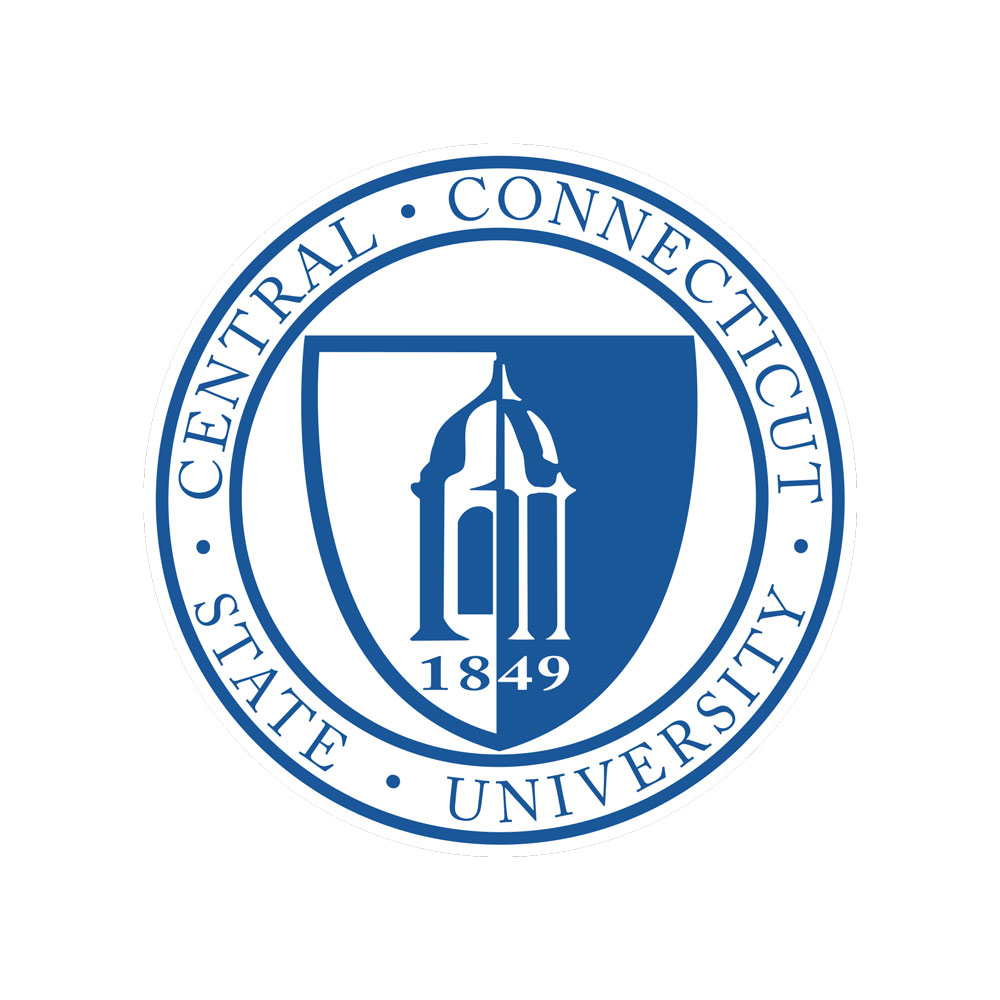
By Kate Callahan
As someone who has taught and conducted research at multiple universities, Associate Professor of Sociology Heather Rodriguez says her students at Central are among the most hard-working she has encountered.
“The students do so much outside the classroom,” she says. “It’s admirable.”
Rodriguez notes how many students at Central work full- and part-time jobs; take care of family members; or serve as the primary source of income in a household. That’s why she begins each semester with an acknowledgement of all the responsibilities her students might be managing, while showing them that their success is paramount.
“My teaching also involves a lot of reciprocation,” she adds, “There are little things that help like learning all of their names and learning five facts about them.”
Her efforts were recognized this year by the CSCU Board of Regents, which selected her as the winner of the 2022 campus-based Teaching Award. The award recognizes faculty who have distinguished themselves as outstanding teachers for at least five years and have a minimum two-year track record of promoting instructional improvements for the programs or departments.
“When students come back to me semesters or even years later and they’re sending me articles, news stories, and mentioning groups that they’re a part of, or jobs that they attained, and how they still connect years later to something that they had learned about in class. That’s certainly a good way of thinking about how well a topic has been covered,” she notes.
When Rodriguez became aware that she was this year’s recipient of the Board of Regents Teaching Award, she was “shocked, in disbelief, and grateful.”
Part of Rodriguez’s teaching philosophy includes creating a “third space” with students, whether it’s office hours, attending a student’s performance, or walking across campus together.
She says, “To be successful, engaged, and present, students need to have that connection to the university. I want it to be an uplifting and communal experience for them.”
Rodriguez believes relationships are important to creating an environment in which students never feel like strangers. One of the ways Rodriguez knows her teaching is effective is when students seek her out years later.
The art of experience
In addition to her teaching schedule, Rodriguez researches ways in which public art is used to examine the Latino experience and reconstruct racial identities in the United States. One geographical focus has been the Imperial Valley in Southern California. Her research, supported by a CSCU research grant, documents issues like class and income inequality, better wages and working conditions for farm workers, and, in more recent years, memorializing victims of gun violence.
Rodriguez’s work aims to ask and answer the question of how murals help to address socioeconomic inequalities; raise awareness; and celebrate the history of their home cities.
“You have the mural as a type of voice,” Rodriguez says. “Does the mural make somebody more attuned to the inequalities Latinos face?”
She points to the popular music and arts festival in Coachella Valley, Calif.
“Coachella has become this center for fairs and festivals and music fests, but festival-goers may not know about the history of Latinos in that area.”
She wonders, “If people who go to the festivals ever learn about the history of Coachella and who is living there, what do the murals mean in the big picture? Is there a cause and effect between the mural as a voice and change in social policy?”
Rodriguez’s research is ongoing. She has collected 300 examples of murals that document the Latino experience around the country. Now that COVID-19 restrictions are loosening, she would like to travel to see more murals in other Latino communities in the U.S.
“It is interesting to see budgets that cities have for murals,” she says. “I think about Connecticut, and I wonder if towns and cities would take the steps to invest funding into public art and mural projects as a way to document the history and culture of the cities? It makes a very unique contribution to a town.”
This fall, Rodriguez is teaching a special topics course on Sociology of the Environment and two Introduction to Sociology courses for first-year students. Classes that are offered under the First Year Experience program incorporate college-transition skills relevant to first-year students as they make the transition from high school to college learning environments.
Rodriguez’s course load reflects her continuing passion for teaching, even after 20 years of teaching at the university level, and she says she still feels a rush as she enters the classroom.
“It’s where I’ve excelled and where I light up the most in my everyday interactions,” Rodriguez says.



